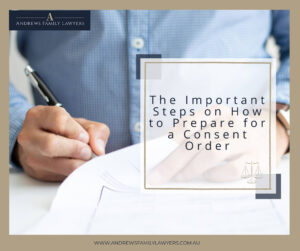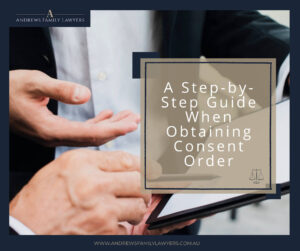Separation or divorce can be a confusing and scary time in people’s lives. Especially when you have important financial settlements to resolve. You can experience emotions from anger, frustration, and anxiety to even euphoria when you’re finally closing a chapter. Imagine having to resolve a financial settlement while dealing with such complex emotions. Making the process as easy as possible means selecting the right settlement method.
The right approach depends on various factors. How complex is your financial situation? Do you have an amicable relationship with your former partner? What are your preferences?
We’ll explore how to handle a property settlement. We will discuss the advantages and disadvantages of each method to help you make an informed decision. You can then determine the right approach. This will protect your finances during divorce or separation.
Key takeaways
- The three best ways to resolve a property settlement are mediation, negotiation and litigation.
- Mediation involves a suitable third party facilitating a discussion between separated partners over how they will divide their property.
- In negotiation, parties can discuss financial arrangements directly with legal representation.
- As a last resort, parties can ask the Court to make a determination over property matters.
- Binding financial agreements and consent orders are two ways separating partners can use to divide their property.
- Consent orders are property settlements organised by the Family Court through a four-step process.
- Binding financial agreements allow parties to form a legally enforceable agreement without the Court.
- There are various factors to consider when deciding how to divide your property. These include the potential for compromise, your asset pool’s complexity and how any children will be affected.

The 3 Best Ways for Resolving a Property Settlement in Family Law
If you want to divide your financial resources after a divorce or separation, here are the three most common options.
Mediation
A voluntary process wherein a neutral third party (the mediator) assists separating couples in reaching mutually acceptable agreements on issues such as property division and spousal support.
Negotiation
This is an informal process where the parties, often with the support of independent legal advice, communicate directly to address their disputes and work towards a mutually beneficial settlement.
Litigation
Parties don’t always agree on a property division. In litigation, the Family Court makes a final decision on disputes. This is typically a last resort when other resolution methods have failed or are unsuitable. Understanding the critical aspects of mediation, negotiation, and litigation will enable you to make a well-informed choice when determining the most appropriate action for resolving property settlements.
As we go through these choices, we must remember that each family’s circumstances are unique. No single solution fits everyone. What may be effective for one family may not be appropriate for another. Seek advice from experienced professionals.
What is a financial settlement?
Before we delve into the three primary methods to divide property, let’s define what a financial settlement is. Whether you’re married or in a de facto relationship, your finances will get mingled with your partner as you make a life together. In the event of a relationship breakdown, you’ll need to make financial arrangements to separate your property.
A property settlement provides a legally enforceable way to divide an asset pool. This can be achieved through a financial agreement or the Court’s intervention. Property settlements take different forms.
Consent orders
When you apply for consent orders, you’re appealing to the Court to sign off on a settlement you’ve agreed to with your ex-partner. The Court applies a four-step process set down in the Family Law Act.
Step one
The Court will account for all the assets and liabilities under consideration and determine the proper value of the entire marital pool.
Step two
In the second step, the Court assesses the relative contributions of each party. Direct and indirect financial contributions are considered, but so are non-financial contributions. The Court will value factors like home maintenance and child-rearing.
Step three
After accounting for each party’s various contributions, the Court will consider each party’s future needs. This step recognises that many married couples have an imbalanced access to financial resources.
Step four
At this stage, the Court determines whether the division is just and equitable. If the Court doesn’t believe the settlement satisfies this requirement, it may make adjustments to the agreement or reject the application.
Binding financial agreement
Binding financial agreements (BFA) don’t include the Court. A BFA is a private agreement between parties. BFAs can be more flexible than a consent order as you can enter into them at any point. Consent orders can only be sought once a couple has separated. You can draft a BFA before a relationship begins, during the relationship or after separation.
BFAs also don’t need to cover an entire marital asset pool. You can seek a financial agreement to preserve particular assets like precious artwork and other unique items.
A valid BFA must meet certain criteria to be legally enforceable. Both parties need to receive independent legal advice. This advice should provide information on how the agreement affects the parties. The lawyers then provide an independent solicitor’s certificate. This certificate confirms that the parties received the necessary legal advice and makes the BFA enforceable.
A BFA’s flexibility can be useful. However, they can lead to imbalanced divisions. There’s no process to ensure fairness. Financial agreements can lead to one party losing out on their proper entitlement. A BFA can also be a particularly expensive option. The complexities involved in drafting them means that the process can be extensive.
A Collaborative Approach to dividing financial resources
Separated couples tend to find mediation very helpful. A neutral mediator facilitates discussions between parties. Mediation has many advantages, including:
Cost-effective
Mediation is generally more affordable than litigation. The price of a session depends on its length. A two-hour session will cost about $1000. A full day may be around $3000. You can keep these costs down by being prepared and forming an agreement quickly. It’s also easier to share the expense. Litigation can cost significantly more through hearing fees, filing fees and legal costs, and you’ll likely shoulder that expense by yourself.
Time-efficient
Mediation can be scheduled around everyone’s availability. It’s typically quicker than court proceedings. Well-prepared parties that want to find a resolution can settle the matter within a day. Litigation often goes for several days.
Confidential
Discussions during mediation remain confidential. Mediators are required by law to not divulge what’s said during a session. This means that your discussion isn’t admissible in court. You are free to be open and honest.
Mediation promotes collaboration. Separated couples can then maintain a more amicable relationship. This is particularly important when children are involved.
While it offers several benefits, it’s not always suitable. Some couples have a power imbalance that leaves one participant vulnerable to being coerced. A history of family violence also makes mediation inappropriate.

Direct Communication
Negotiation is also popular. Both parties engage in direct discussions to find a mutually beneficial agreement.
Legal representation provides support and advice throughout the negotiations. Benefits of negotiation include:
Flexibility
Negotiation allows both parties to express their preferences and priorities. This allows the participants to find arrangements that suit their circumstances. Without the need to satisfy the Court, you can explore creative solutions. This might include sharing assets like real estate or a vehicle on an agreed-upon schedule.
Informality
Negotiation doesn’t have to include a rigid structure like a court process. You can organise a more relaxed environment so you can discuss your concerns openly. This facilitates cooperation and makes it easier for you to reach an agreement.
Control
Both parties participate in the negotiations. This maintains control over the outcome. Most people find this preferable to allowing the Court to settle the matter.
Privacy
Negotiations are private. This maintains everyone’s confidentiality throughout the process.
However, not everyone would benefit. It’s inappropriate with a history of domestic violence or coercion or if one party won’t engage in constructive discussions.
Discover: What Is a Binding Financial Agreement?
Turning to the Court
Sometimes, other methods prove unsuccessful. Some parties also have particularly complex cases. Going to court is the final option once all attempts to negotiate fail. An experienced family lawyer is critical to getting the most out of the experience. Court proceedings can be tricky to navigate. A lawyer will use their expertise to ensure the best outcome.
In litigation, a judge decides on the allocation of assets. Some advantages of litigation include:
Enforceable outcomes
Litigation is binding. Both parties must comply with the Court’s decision. Breaches incur sanctions like fines and adjustments to the settlement that penalise the offending party.
Impartiality
A judge decides based on evidence and legal principles. The outcome won’t be biased or emotional.
Clear procedures
A defined structure and procedural rules make litigation predictable and transparent.
Legal representation
Both parties can seek legal advice and representation from experienced family lawyers.
Litigation drains parties emotionally, resulting in strained relationships. The confrontation of court proceedings can create bitterness and resentment. This is why we always recommend you take all opportunities to cooperate with your ex-spouse.
We have a blog that explains how to divide assets fairly in family law. You can check it out.
Factors to Consider When Choosing a Resolution Method
When deciding on a dispute resolution method, consider the following:
Nature of the relationship
People going through a divorce experience complicated emotions. In the best case, the split is amicable and you can communicate on good terms. However, it isn’t unusual for couples to develop ill-will. This limits your ability to find solutions outside of court. Serious scenarios like family violence will also be a large factor.
Complexity of financial matters
Complex financial arrangements are often not easy to settle. Finding an acceptable division through mediation or negotiation can take a long time. Appealing to the Court for an order may be the best option. We sometimes hear from people that going the litigation route makes them a failure. This isn’t true. If you’ve made genuine attempts to cooperate, the Court can be a big help. The Family Law Act ensures both people are treated fairly. There’s no ambiguity around what the Court expects of the parties.
Willingness to compromise
Can you and your former partner find common ground? Finding compromises is important in mediation or negotiation.
Potential impacts on children
The resolution method can influence the future relationship between separated parents. This is crucial to consider for the well-being of their children. The Court wants co-parents to cooperate in caring for the children.

Conclusion
Resolving financial settlements is a critical component of separation or divorce. Finding the right resolution method is essential.
These three methods offer unique benefits and potential drawbacks. Understand your situation and needs to find the right choice.
Do you need assistance with family law matters? Contact Andrews Family Lawyers today.




